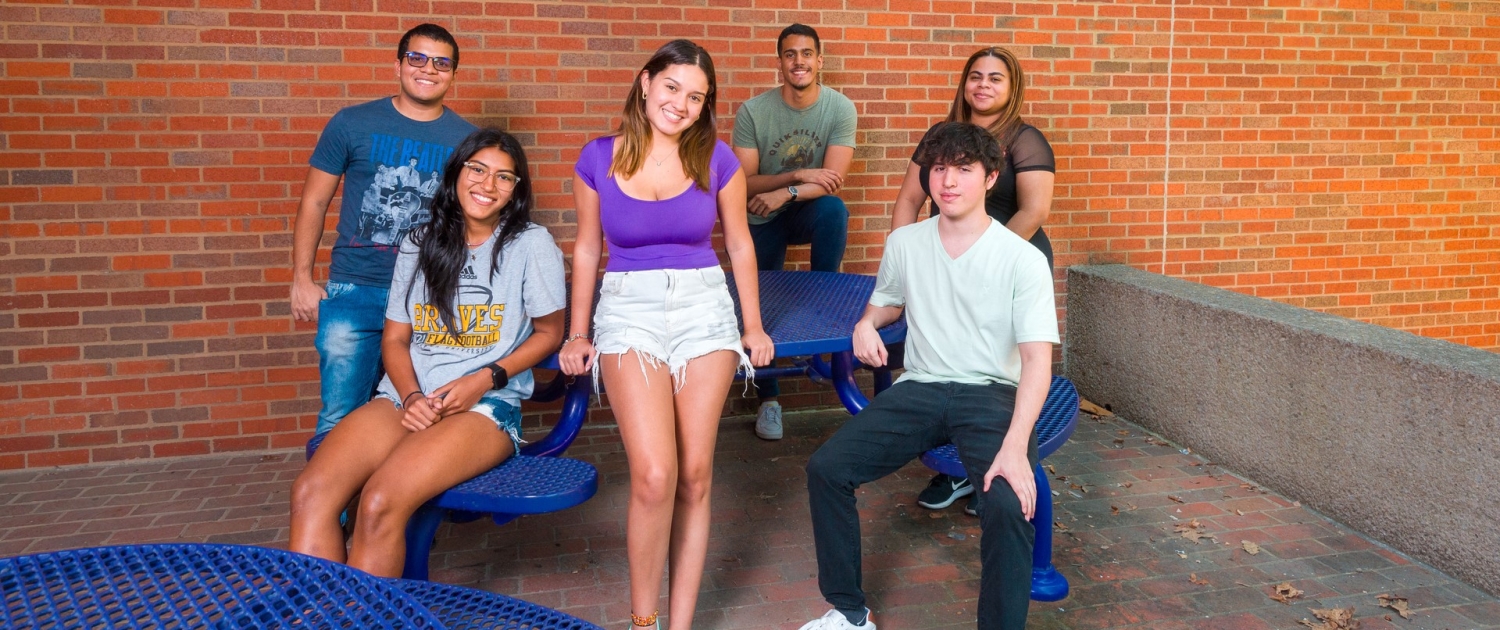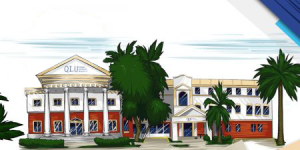
Globe-trotting
Ah, once the semester ends, a bunch of college students head to Panama City for fun together. No, not the Florida destination — these UofL students are bound for the Panamanian capital, between the Pacific Ocean and tropical rain forests alongside that manmade wonder, the Panama Canal.
And these study-abroad participants are far from being the only ones who know how to throw the UofL “L” in the urban center and tourist mecca. Panama City is also home to Quality Leadership University, where many UofL alumni get their collegiate start.
Even the QLU founder and rector – Oscar Ronaldo Leon Oliva ’88, ’89 – is a Cardinal alumnus, among the 2023 UofL Alumni Award honorees as the Student Affairs Legacy Award winner. As a special invited guest, Leon also attended UofL President Kim Schatzel’s recent inauguration. It was a testament to the dynamic connection between two communities across the globe.
So, how did UofL and this Panamanian institution of higher learning come to have these enduring ties that further educational opportunities in both countries?
In the beginning
It all started with Leon, a Guatemala native who came to Louisville on a Fulbright junior scholarship to study business administration and stayed to earn a master’s degree in higher education administration. In an education class, the assignment was to develop a career plan.
“I wrote that I wanted to start a university,” Leon said.
So he did.
Leon and his family moved from Louisville to Panama City, where they started Quality Leadership University in 1997. He communicated with several UofL administrators and faculty members to forge agreements whereby UofL professors, who had doctoral educations that were in short supply in the Central American country, could travel to Panama to teach in various programs there, expanding QLU’s beginning scope.
“The relationship has been very productive for both universities,” Leon said.
The UofL-QLU partnership works in several main ways: undergraduate education in Panama City, with classes taught by visiting UofL professors; continuing undergraduate and graduate education in Louisville for the Latin American students; and a study-abroad option in Panama for UofL students.
The Panama undergraduate program is a nondegree curriculum that offers students from Panama the chance to complete up to 56 credits of coursework, fulfilling UofL’s general education requirements. UofL and QLU faculty credentialed to teach for UofL conduct the courses in English at the Panama City campus. That curriculum prepares them for a wide variety of UofL majors. Students who complete those hours are eligible to continue their education in Louisville as transfer students at UofL.
QLU has offered undergraduate and graduate programs in academic cooperation with UofL since 1999, and both institutions have graduated more than 2,000 Latin American professionals in Panama, according to Leon. Most do return to Panama after their U.S. experience, he said, and many become leaders in business and other pursuits.
This fall 22 new students from Panama embarked on their Louisville campus journey, enrolling as transfer students in several of UofL’s colleges and schools where their predecessors have earned their UofL diplomas. Several incoming students at the international students’ orientation spoke about taking opportunities when granted and learning about other cultures.
For Bruno Croston, who’s majoring in business management, the appeal is “mostly to get to know more people who are in my area, to create connections and go deep in my study of business.”
Riya Ahir, a finance major, traveled to Louisville with her husband, Kemish.
“You know, the experience is totally different, the college life, the culture. This way we can see each culture and how people live,” Ahir said.
Some of the newest Cardinals arrived with their parents, who also got to tour campus and check out the city where their children will earn their degrees. For Gustavo De Ycaza, part of the draw was the required co-op experience offered at UofL’s Speed School of Engineering, where son Juan Jose De Ycaza will be studying industrial engineering and gaining work experience.
“I think this could open a door in the future,” said the father, who also commented that the family was excited about the city’s cultural mix.
While QLU is also home to some other universities’ academic programming, Leon is proud indeed that his U.S. alma mater is well-represented there. And his UofL colleagues are pleased to have his students transfer to Kentucky to complete their degrees.
Ramonia Brents, a recently retired coordinator, worked with the programs’ participants and faculty, many who have taught at QLU for several years.
“(The program is) something we really want to grow,” Brents said. “This is one opportunity for the Panama students to come here to the university, enlarging our global imprint.”
“What (Leon) has consistently accomplished has been wonderful,” said Michael Mardis, UofL dean of students and vice president for student affairs. “The most enrollment (of undergraduate international students) we have at UofL is from Panama, and that’s because of him.”
Local Cardinal graduates in Panama City remain connected enough to gather and celebrate the latest students’ completion of their local studies and to host UofL faculty, staff and administrators, recently including Mardis. (There even has been talk of establishing an alumni chapter, which surely would be UofL’s southernmost such club.)
Exchange of ideas
Come May, though, there’s an influx of Kentucky-based Cardinals also in Panama to learn under a different format. Panama Scholars resumed their travel to the country this spring after a three-year hiatus of the study abroad program, which began in 2003.
This time UofL students had their choice of an intercultural communication class with Al Futrell, longtime UofL communication department chair, or a Central American politics class with Tricia Gray, UofL political science chair, as well as a required Panamanian culture class taught by a QLU professor. Students earned six credit hours for the three weeks of intensive study.
But, as with other UofL study-abroad courses, their education wasn’t restricted to campus. Students visited the famed canal, historic Casco Viejo district, Presidential Palace, an orphanage and other spots including an Embera Indigenous community in the Gamboa rain forest.
“If you talk to any professor who took students on a study-abroad trip, they will say it’s a life-changing experience for the kids,” Futrell said. “In terms of the education, you can see it on their faces.”
Frequent flyer Futrell has been to QLU about 40 times, teaching the study-abroad courses and journeying there two or three times a year to teach Panama City students enrolled there. When the Panamanians come to study further at UofL, he is a familiar, friendly face and a go-to connection.
Other UofL classmates benefit from the visiting Panama students in his estimation.
“Our students get an experience with international students. There’s no downside to this,” Futrell said. “They actually help educate us by providing a different perspective on things. As a result, our kids benefit from the education.”
Leon suggested that the same is true for professors, who may become more sensitive to the culture through their QLU work and that they bring that experience back to Louisville.
“Education can transform lives for the better,” Leon said.
Buscar
Legal
Encuéntranos
Calle 45, Bella Vista, entre Avenida Justo Arosemena y Vía España, Ciudad de Panamá
Teléfono: (507) 264-0777
Horas: Lunes a viernes, de 8:00 a.m. a 6:00 p.m. y los sábados de 8:00 a.m. a 2:00 p.m.

Quality Leadership University Home


